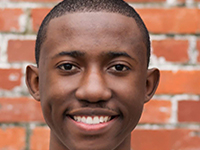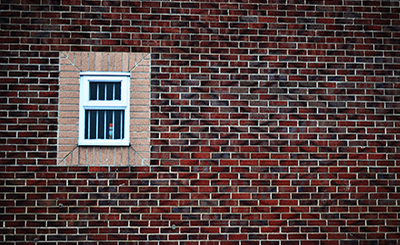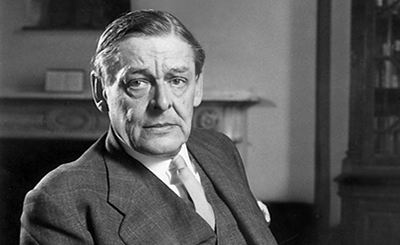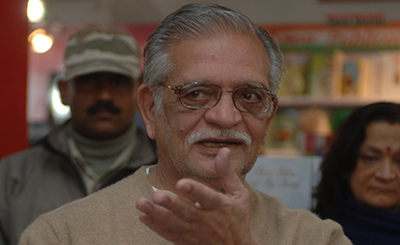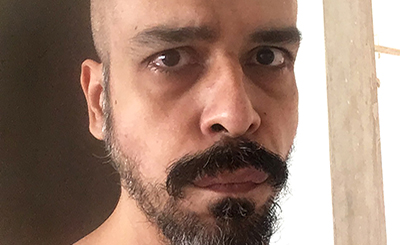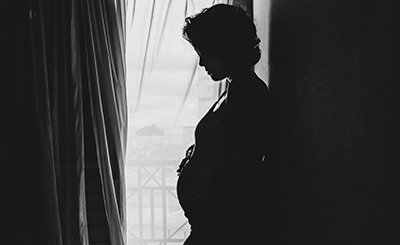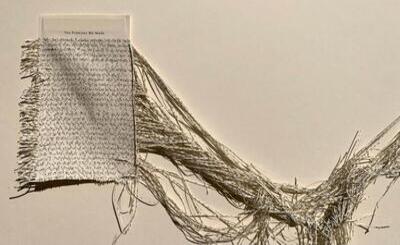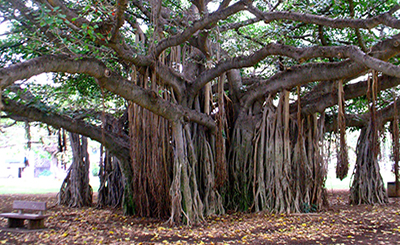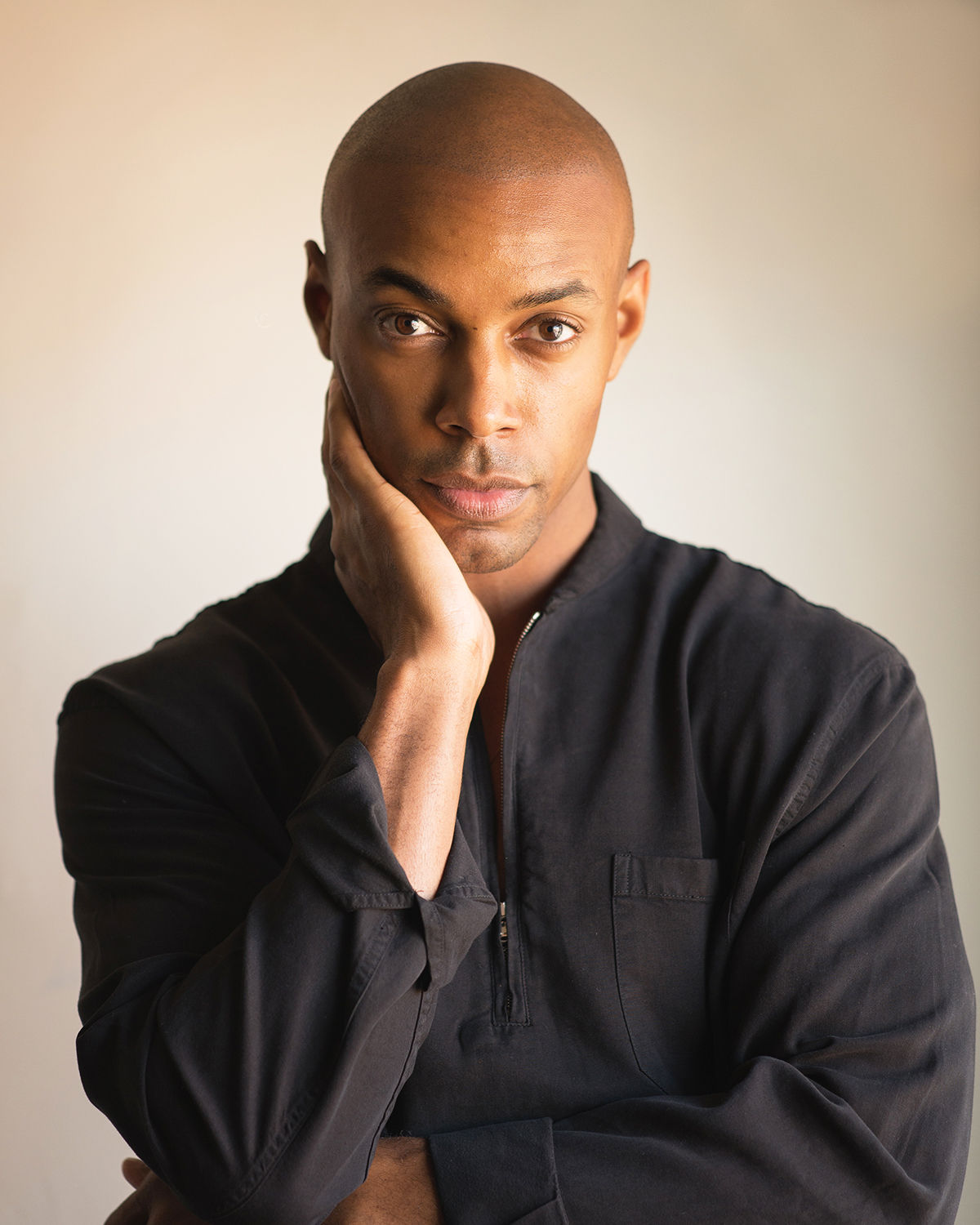
Casey Gerald. Photo: Hallo Smith
The author of There Will Be No Miracles Here talks about how he navigates the world while at the intersection of many identities — a ‘nigger’, a Yale man, a Harvard man, a faggot, a Christian, and a crack baby — and how queer people have to build the muscle of courage more than an average human being to come to terms with a fallen world, ‘nasty and harsh’
Casey Gerald, author of a memoir, There Will Be No Miracles Here (2018), writes, “I have been so many things along my journey: a poor boy, a nigger, a Yale man, a Harvard man, a faggot, a Christian, a crack baby (alleged), the Spawn of Satan, the Second Coming, Casey.” In this interview, he talks about how he navigates the world while at the intersection of those many identities.
Gerald is a graduate of Yale University, where he studied political science, played varsity football, and co-founded the Yale Black Men’s Union. He went on to receive an MBA from Harvard Business School and co-found MBAs Across America, a movement of MBAs & entrepreneurs working together to reinvent business school and revitalise America, in 2012. His speeches at TED and SXSW have garnered critical acclaim, and he has been featured in The New York Times, Vanity Fair, on NPR, and on the cover of Fast Company magazine.
“We’re all cracked up in a lot of ways. And that’s all right, but you can’t heal it unless you look at it. Unless you accept it, you can’t heal from it,” says Gerald. In the beginning of the book, he writes: “… I have been so many things along my journey: a poor boy, a nigger, a Yale man, a Harvard man, a faggot, a Christian, a crack baby (alleged), the Spawn of Satan, the Second Coming, Casey.” During the interview, he says: “All of those little categories have their own histories, their own substructures and superstructures. And the job of my life is to repair all of those things into the whole.”
This repairing is quite a task in the light of his sexual identity. Gerald says, “What queer people have to come to terms with is that we need a hell of a lot more courage than your average human being. It’s about building that muscle of courage. There’s only so much you can do to change the world, change the reality of the nastiness and the ugliness of the world. But there’s a great deal that you can do to wrestle life from the hands of death in a fallen world.”
Excerpts from an interview:
John Cooper: Why a memoir now?
Casey Gerald: Well, it says memoir on the cover, but I really think about this book much more as an intervention. I began it simply because I knew there was something wrong with me. I had achieved by my late 20s about everything a kid is supposed to achieve in America. But I was really cracked up… Not necessarily having a nervous breakdown, but not too far off. And I felt awful sad either way. A lot of my friends were cracked up. And the world was cracked up, too — this is 2016. And so I set out with the book to trace those cracks with words, you know. And before I finished, one of my closest friends from Yale — who I helped recruit, and whose childhood had been very similar to mine — committed suicide. He came to me in a dream a couple of months after that, and he was sitting in a booth in a diner. I was just getting to the stuff in the book, the material where I got to Yale and I got really sad all of a sudden. I couldn’t write for a couple of days, so I took a nap, and my friend came to me in this dream. He was sitting in a booth in a crowded diner and he said, “You know, we did a lot of things that we wouldn’t advise anybody we loved to do.” And then I woke up, but I knew what he meant.
My job with this book, with this intervention, was to make plain those ‘things’. To make it clear that the ways we’re taught to live in this country are actually killing us. And to do that as clinically and objectively as possible. And at the same time, to imagine what it would look like to truly live, to be whole, to be free, to be a better person. In some ways, I wanted to be born again and to make a book that embodied that. It’s much more than just an autobiography.
John Cooper: Do you think you accomplished the goal of making it more than an autobiography, of advising people to live differently than you did?
Casey Gerald: Only time will tell. A book is not a McDonald’s happy meal. You don’t go through the drive thru and come out on the other side and say, ‘Hey! I got it!’ I did the best I could to tell the raw and honest truth. I had seen America from the very bottom to the very top, and I wanted to report back. You know, I think about Robert Caro’s work. He never lets his personal feelings about Lyndon Johnson or Bob Moses get in the way of his job, which is to tell you, as objectively as possible, how power works. I think if I succeeded, and I think I did the best I could at this, this is a raw and honest portrait of the reality of the American Dream and also the American reality. So, you know, we’ll see.
John Cooper: One of the things that you were really raw and honest about was your time at Yale. Could you talk about that first year? What made it so lonely for you, and how’d you get through it?
Casey Gerald: One of the things that made it so lonely was that it was the first time I realized how poor I was. And I write in the book that ‘poor’ is a word that we didn’t even use. I guess everybody was so poor. ‘Poor’ is too vague a word to be useful. What we knew was that we didn’t buy our toys at Toys R’ Us. We didn’t go to restaurants for steak. We didn’t go on family vacations. We didn’t go to the museum. We didn’t have closets full of clothes. We didn’t have our six months’ cleaning at the dentist. I try to bring a specificity to that. And it wasn’t until I got to Yale that I realized how materially lacking my life had been. But also, I think it was the first time — and I didn’t have the language for this — that I started to understand intersectionality —like Kimberlé Crenshaw’s work. I said from ages 8 to 18, I understood ‘my people’ to mean black people. Everybody where I was from was black: my best friends, my sworn enemies, the mailman, the trashman, the teachers, the preachers, the grocery store owners. That was not even a point of contention.
But I got to Yale and I realized it was much more complicated than that. That there seemed to be this delineation between, or this investment in, the difference between black people and niggers. And it felt very clear to me, and maybe this is just my sensitivity, but it became very clear to me that when the lines were drawn, most of my peers at Yale would put themselves on the side of the black people, and they would put me on the side of the niggers. And this was a very disturbing thing.
So I felt very lonely for a lot of reasons. The practical reasons were that I was 1,500 miles away from home and it was cold. I remember it was October and I had on earmuffs and a Parka and everything else. I just couldn’t understand why in October it wouldn’t be 80 degrees. It was absurd to me.
I stayed honestly because when I’d first gotten into Yale, there were a few teachers at my high school that said: ‘There’s no way that boy’s gonna graduate from Yale. He’s a crack baby. He’ll be home before the end of the first semester.’ And I think revenge was such a driving force in me for a very long time: that sort of sense that if you leave this place, if you don’t master this very foreign world, then you’ll prove everybody right who doesn’t believe that you’re worth a damn. And I think that drove me in somewhat toxic ways. But I don’t think I would have stayed at Yale without that horse riding my tail, if that makes sense.
John Cooper: Even with the loneliness that you felt and the material that you thought you lacked, and the intra-racial division that you saw, you started the Black Men’s Union. So what role did it play for you in bridging that divide then, and what role do you think the Union should play now? Is it any different 10 years later?
Casey Gerald: We were juniors when we started the black men’s union. It came out of very personal pain, not some grand purpose. We thought there ought to be a place — a safe place — where every boy that comes to Yale at 18 years old feels that he has a sense of community. He has someone looking out for him. He has someone he can go to if he has a problem or if he has a question or if he has an idea. We thought that was very important. Secondly, we thought it was very important that each of us use our time and talent to help other people. We thought about that Marian Wright Edelman quote, ‘Service is the rent we pay for living.’ You know, there were so many organizations on campus that seemed solely devoted to their own advancement. There was an upper-class man when I was a freshman or sophomore who said the reason the black community at Yale has failed is that it doesn’t do anything serious. Now, that was his opinion, I’m not saying that was what I felt, but we do think that it was very important. Yale is in the heart of New Haven. And you walk up and down the streets everyday and you see these people who have been left behind and it felt like being back in my neighborhood. And I thought we oughta do something about it…we thought we oughta do something about it.
The third piece of it was that we felt that if you’re gonna go through all the trouble of going to Yale and paying for tuition and studying and doing all of that stuff, you oughta rob the place blind, not just take a sack of quarters and sit on the back porch. You see what I’m saying? We thought that black men and men of color and people and black people in general should feel they were as central to the world and as central to Yale as anybody else. So, that was sort of the germ of the idea.
Looking ten years later… I went back to our freshman induction a few years ago. And, in some ways, I went back with an apology. This was right after my friend [who] had helped us start the BMU had committed suicide. And I said, we spent ten years getting really good at making great men. We didn’t do a good job at all of making free men. Whole men. And I took a great deal of responsibility for that because I drove myself, and I drove so many of the young men in the Black Men’s Union, to be great. To be perfect. To be first. To be bold. But I didn’t drive them to be whole, to be free. [I] didn’t even know what that meant. And so I think my hope for the BMU, and my hope for black people in general, especially for those of us who have been sent off to in these elite institutions, is that we become as invested, if not more, in our wholeness and in our personal freedom as we are in our perfection and in our greatness.
John Cooper: What do wholeness and personal freedom mean to you in particular? How do they present themselves in your life?
Casey Gerald: Well, I’ll give you an example. A month before my friend took his life, I texted him on his birthday, ‘Happy Birthday!’ And he texted back. ‘Thanks brother. It’s only getting better.’ I think so many of us are conditioned to try to ignore all of our pain, all of our anxiety, all of our disease, all of our doubts. To perform to ourselves and to the world, an image of perfection. And that image of perfection is diametrically opposed to real wholeness, you see. So that’s one piece of it.
It’s just telling the truth, I guess. We’re all cracked up in a lot of ways. And that’s all right, but you can’t heal it unless you look at it. Unless you accept it, you can’t heal from it.
As it pertains to freedom, when I first got to Yale, and I went to my academic advisor and I had on a fitted cap, and she said, ‘Well, do you wear those around campus?’ And I said, ‘Well, yeah.’ And she said, ‘Oh no Casey! You can’t do that. You’re at Yale now. You don’t have to do that anymore.’ So many of us have been willing to mutilate ourselves to be acceptable to other people and that is not freedom. So when I think about what freedom looks like, I’m not talking about political freedom. That’s a whole different exercise. I’m talking about radical, personal freedom. I think of it in terms of refusing the mutilation that we are daily, hourly invited to do to ourselves, and being willing to pay the cost of that.
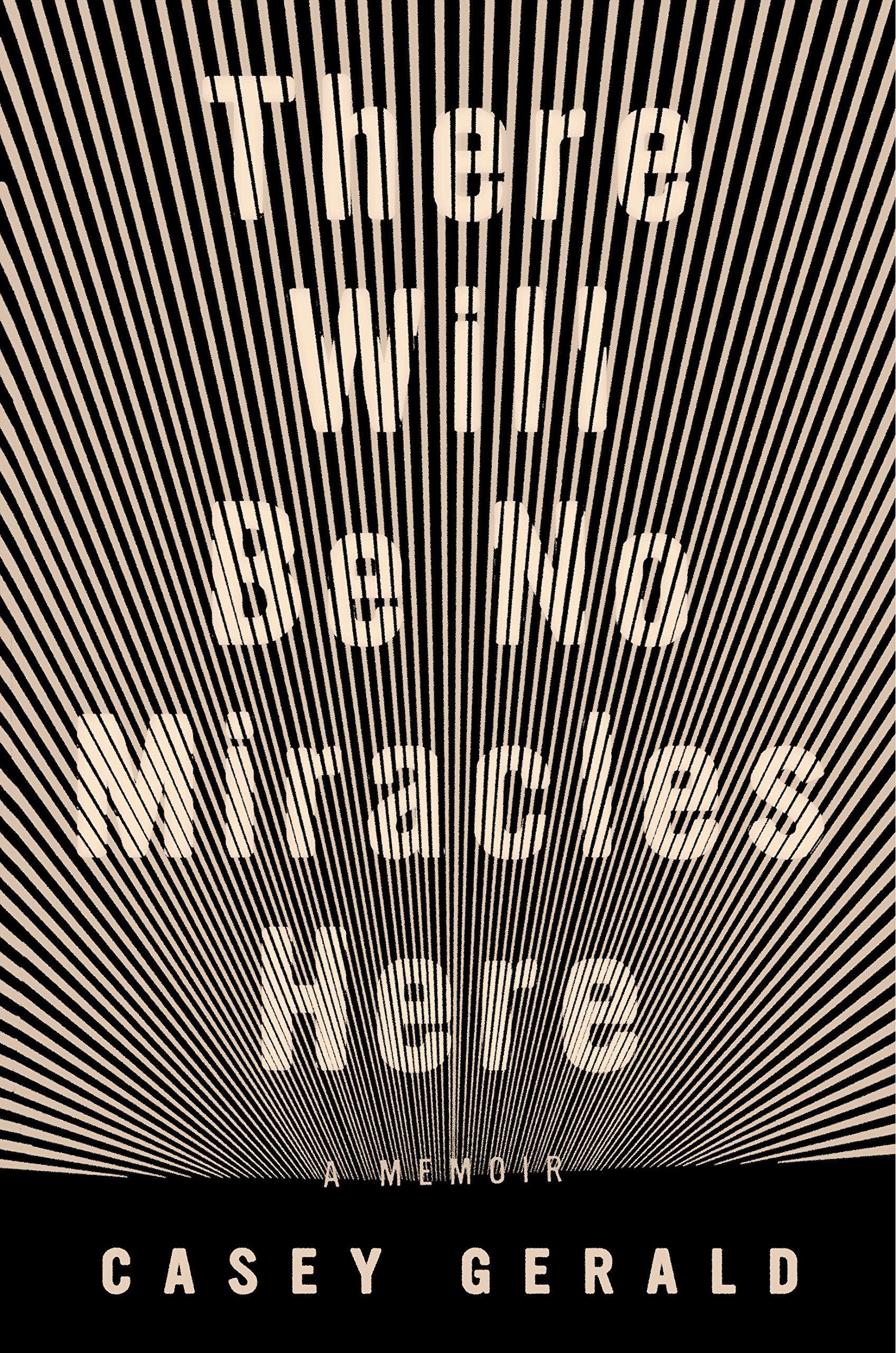
John Cooper: You mention paying the cost. I remember when you talked about your first experience with a man you said, ‘There is a price to pay for freedom.’ Being on the other side of that now, do you think you’re still paying a price?
Casey Gerald: Sure. Yeah. We pay a price for everything every day. One of the realest prices to freedom is certainty. I write about Juneteenth (an American holiday that commemorates the June 19, 1865, announcement of the abolition of slavery in Texas, and more generally the emancipation of enslaved African Americans throughout the former Confederate States of America, outside Native American lands). I’m from Texas and the slaves in Texas were enslaved for two more years [after emancipation]. And my family has been in Texas since before the Civil War. My grandmother’s grandfather was born a slave, and so he was one of the 250,000 Texans freed on Juneteenth, 1865. We would go back to her hometown: Pelham, Texas, one of the first communities founded by formerly enslaved people. And I always thought, ‘This slavery thing sounds so terrible! How did people survive?’ And she’d say, ‘Child! Don’t be talking ‘bout how bad slavery was! Everybody had a house, a job, and some food to eat. Now, if somebody came and paid your rent, you wouldn’t be talking about leaving, now would you?’
For a long time, I couldn’t understand. I thought this was absurd. How is this person — by the way, she’s the only person I know who had direct communication with someone who had been enslaved. I just couldn’t understand how she had this kind of absurd view of slavery. But it took me a long time to realize that it wasn’t about the positive side of bondage, it was about the cost of freedom. Because on June 20, 1865, or soon thereafter, her grandfather and all of those other 250,000 people who had for their whole lives, and their parents’ lives, and their grandparents’ lives known what their existence would be, from cradle to grave. Even if it was a horrible existence, they knew what it would be. All of a sudden, they had to out of thin air create radically new terms by which to live in the world. And that’s terrifying. It’s really hard. And I think we are going through, generationally, a similar moment here in this country. The world and the ways of living that we inherited are over, are dead. It’s dying and it needs to die.
So I think we’re in the early days of a beautiful and dangerous revolution, as it pertains to the terms by which we live in the world. And the terms by which our parents lived don’t work for us anymore. But there’s a lot of uncertainty with that, and you see that people cling to the old ways, not out of some malicious intent, but because it’s really terrifying…
John Cooper: Part of the paradox, or difficulty of being stuck between two worlds, is that while something new is being created, there is still part of what’s left over behind us. Being at Yale, I had this weird moment this summer where I was going to Harlem with a classmate and he says to me, ‘America’s a really progressive place.’ And he’s from Los Angeles, of course. We go to school in New Haven, and we were going to New York. So in those places, America is progressive. But in most of the country, in places like Texas and South Carolina, that’s not so. Is it tough for you to go between the world you live in now and to go back to Texas? Is it tough for you to be both the Casey Gerald that writes this book, that gives TED Talks, and to also be just a guy from Texas?
Casey Gerald: Yes and no. I might butcher this, but there is a strand of Judaic theology that says, in essence, that in the creation, God dispersed himself through the universe and into people, into animals, into things, into the stars. That all of the things that you see, all of the things that exist — the tiny particles, the little things, the big trees — in the world are the little manifestations of God dispersing himself or itself into the world. And that the job of human kind is to repair the divine, to bring all of those tiny manifestations back into the whole. And that is our sole purpose — that’s our highest and best purpose.
I think something similar about our lives, right? We are dispersed into so many little compartments. I have a line at the beginning of the book where it says, ‘For I have been so many things along my journey: a poor boy, a nigger, a Yale man, a Harvard man, a faggot, a Christian, a crack baby (alleged), the Spawn of Satan, the Second Coming, Casey.’ All of those little categories that have their own histories, have their own substructures, superstructures. And the job of my life is to repair all of those things into the whole. So yeah, it’s tough being all of you anywhere — in New York, in Los Angeles, in London, in Accra, in Moncks Corner, South Carolina.
John Cooper: Wow, you know your stuff!
Casey Gerald: Well, my online pastor is from Moncks Corner, South Carolina, so he always talks about it. So you know, it’s hard man, but what a great adventure! If you think about the religious sense in that Judaic theology. What greater adventure than to spend one’s life repairing the divine, repairing all of the tiny manifestations of the divine into the whole? What better adventure for the individual than to spend one’s life repairing all of the tiny compartments of oneself into the whole. So, I think rather than looking at it as something that is tough, I look at it as an extraordinary gift and adventure to be able to spend my time doing that and show up for that challenge. And I think if we got some encouragement and some instructions to do that at our educational institutions, then it might be a little easier.
John Cooper: In terms of your own faith, towards the beginning of the book, you mention living a double life when it came to your sexuality and your faith. How did you transition from Jesus or — this duality where you have to pick one — to having both?
Casey Gerald: I had to let go of the God that I was given to get the God I needed. And perhaps the most important facet of myself — the greatest gift — in that process was being homosexual. My uncle died of AIDS in 1994 when I was seven. And I saw him the night before he died in the hospital, and it was horrifying, and I didn’t know anything about my own sexuality then. But there was such a clear sense — my grandfather was a pastor — there was such a clear sense that all gay people were going to hell, and there was nothing you could do about it. And in the meantime, you were going to get AIDS, and you were going to die. And nobody was going to let you come in the kitchen. And unless you were very, very lucky, nobody might even be at your funeral.
(Now, in the age of PReP (Pre-exposure Prophylaxis, when people at very high risk for HIV take daily medicine to prevent HIV) and that kind of stuff, it’s hard to imagine what it was like at that time). So, I spent so much of my youth trying to rid myself of this thing that was going to send me to hell. And it took such a toll on me that at some point I didn’t want to be alive. I would say I wanted to commit suicide, but I was too much of a coward to kill myself. I just wanted to be dead. And I know so many young people go through that every day. It took that for me to say, ‘Wait a minute. I am not going to die in this life to avoid hell in the next life. I’m not gonna mutilate myself and kill myself for God’s love.’
So, I had to make a new bargain. I had to say I’m gonna live — the best I can — in this life, on my own terms. And if the cost of that is going to be hell on the Day of Judgment, then I’m just gonna have to pay that cost. I’ve never been able to get to the point where some people say, ‘Well, God wouldn’t send you to hell for doing blah, blah, blah.’ I don’t know what God would do for anything, I don’t know. I need a little more certainty than that. And the thing that I am sure of is regardless of what God’s gonna do to me, I know what I’m gonna do to myself. And that has been a very liberating experience that at some point allowed me to experience God in a totally new way. It’s a way that’s informed by a sermon that a friend sent me by Frederick Buechner called The Kingdom of God. And he said, if you really want to know God, the best way to do that is to assume you know nothing about God.
That has changed my life in such profound ways because I still feel this presence that is larger than me, that is greater than me, that is supernatural. It is as real to me as any material thing. I call it ‘God’. And every day I’m trying to build a relationship with this mystery. Not out of fear, not out of judgment, but out of serious and genuine interest and gratitude. But that was a long journey, you see what I’m saying, and it was a journey that had to go through the acceptance of, ‘Hey I have to do this the way that works for me.’ That is life-giving for me, regardless of the costs in eternity or whether it makes sense to anybody else.
John Cooper: Another moment where you say your sexuality gave you a lot of conflict in addition was the moment when you were deciding whether to run for office or not. Can you talk about the conflict that brought you and what you think about elected office now?
Casey Gerald: Yeah, around my early twenties — some time at Yale — I decided that I wanted to be President. And I write in the book that I’m not the best mathematician around, but I guess that a quarter of the students at Yale want to be President. I think that in a lot of ways it’s true. And we lived at a time when there was a sense that if you’re gonna be President, you’ve got to be perfect.
Claire McCaskill (United States Senator from Missouri from 2007 to 2019) said about Barack Obama in 2008 that the message we had to send to people was that Barack Obama is just like us. He’s just like everybody else. He’s one of us. He’s got no particular uniqueness. He’s an everyday man, woman, citizen. Of course, that’s not true. But the program at the time was the best candidate will be the candidate that really is just kind of a puppet of our pedestrian desires and identities. As I say in the book, this draws the candidate and the common citizen into great delusions and really serious lies.
So my only thing was — ok, well, it’s 2011. Anti-sodomy laws were still on the Republican Party platform in Texas. I remember a guy I had gone to high school with had just been murdered. I was with friends, and I said, ‘Hey, did y’all hear about his death?’ And they said, ‘Nah, all I knew was he was a faggot.’ So, we still lived in a world that hated faggots. And I was going to be running for political office in that world. But I said, ‘Hey, you know, I’m not a faggot. I’m Casey Gerald. Yeah I might have this other thing, but I’m just like you!’ This was at 24, the delusional conviction that I had. So I had a final conversation with the guy that was going to be my campaign manager. And he said, “Well, is there anything I should know?” And I said, “Well, yeah, I’m gay.” And I thought he was going to start going into, ‘Well, it’s tough because you’re in Texas, but let’s start getting the messaging together.’ And he says, ‘Well, let me ask you this: How are you going to feel if you’re at a campaign rally and somebody calls you a faggot?’ And I just sit there quiet. And he says, ‘Well, you know, let’s just be real, ok? You do know that someone might want to physically harm you. I’m not saying it’s gonna happen, but it could. Are you ready for this?’
And it was so shocking to me, because from my perspective, I had never tried to be myself. I had spent a great portion of my life trying to conform to whatever standard people wanted me to conform to. So, it was shocking to me, it was heretical to me that someone would harm me just because of who I was. Of course, it shouldn’t have been, but it was. And so, that was part of, I guess you could call it the dark night of the soul. [This was] around the same time I had to come to this reckoning about God. I wasn’t gonna mutilate myself for God. And I wasn’t gonna mutilate myself for any political office, either. I haven’t had any political ambition since then, because I realised that I had strived to win the world. But it was at the price of my life. And what good would it profit a man to gain the whole world and lose his soul? There is no political office. There is no golden robe, golden slippers. There is no number in the bank account that’s worth my life. And it took that consideration for a campaign to really bring that to a head. And as depressing as it was, it was one of the most important things that ever happened.
John Cooper: Immediacy is something that I think about in terms of politics, as well. Just the idea of human beings expecting other human beings not only to be perfect but also to respond to their every need in exactly the right way. And also the idea that you could spend your whole life doing a job and at the end of it, there’s still millions of people saying, ‘Not good enough.’ Did that at all factor into your decision — the insatiability of people?
Casey Gerald: No, no. I mean, that’s life. What you just described is life. Whatever you do, whether it’s trying to be a parent, trying to be a lover, trying to be a good Christian, a good Hindu, a good teacher. Whatever you spend your life doing, you will get to the end, and you will look back and you’ll say: ‘Well, it wasn’t quite enough.’ And if you do it right, you’ll be able to say: ‘Well, it wasn’t quite enough, but I tried and I gave the best I could.’ That’s all you can ask of life.
John Cooper: I guess a moment where you had to do just that was your last Yale-Harvard game. And I want to give you a chance to talk about football. People think about football as not only just a game, but a brotherhood. Were you able to be yourself when you were playing football?
Casey Gerald: I wasn’t willing to be myself. Whether I was able or not is another question; it’s hard to know because I didn’t try. As the book came out, I got some of the most incredible messages from my teammates who were in a lot of ways like family to me, especially early on at Yale. So, yeah, I don’t want to fall into the easy road of saying I couldn’t do x-y-z because of oppression or such and such. You can do anything. The question is, are you willing to pay the cost?
So, what I try to do in the book is not to write about sexuality from the perspective of “it’s so horrible.” What I try to do is bring worthy language to the beauty and challenge of loving another boy. It’s a challenge in part, because we live in a society that hates faggots and teaches us to hate ourselves. But it’s also a challenge because it took me a long time to build a muscle of courage. And what queer people have to come to terms with is that we need a hell of a lot more courage than your average human being. It’s about building that muscle of courage. There’s only so much you can do to change the world, change the reality of the nastiness and the ugliness of the world. But there’s a great deal that you can do to wrestle life from the hands of death in a fallen world.
John Cooper: I think one of the things that football, maybe sports in general, has been struggling with is allowing athletes to be themselves. Not only in terms of their sexuality, but right now we’re seeing a lot,
Donate Now
Comments
*Comments will be moderated



